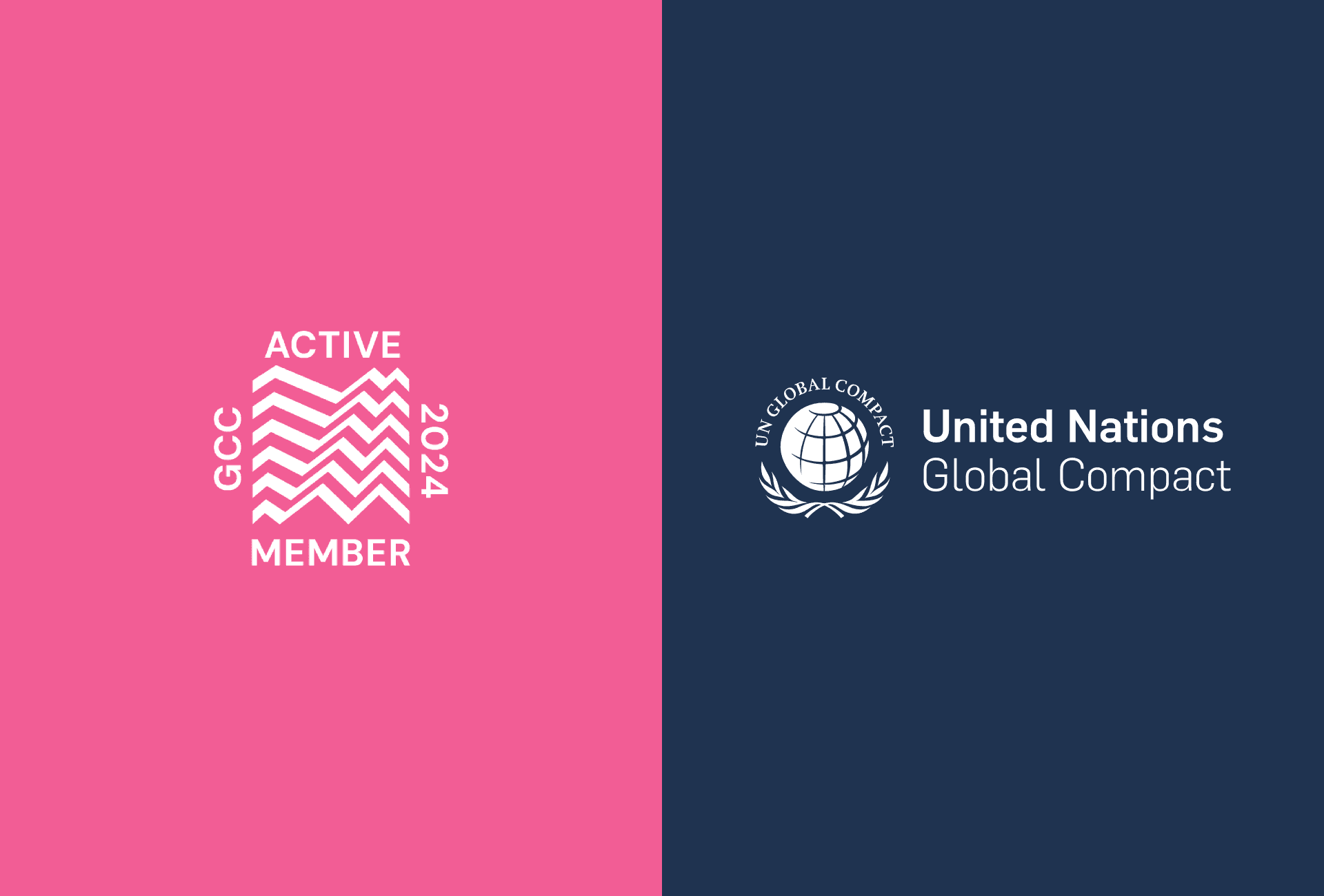Our Path to Net-Zero by 2035

Rudy
Bottin
Head of Sustainability
30 Oct 2025
Eythos is deeply committed to sustainability, integrating environmentally responsible practices into its core operations. Our team actively tracks and reduces the carbon footprint of all Eythos’ operations, including shipments, and prioritises the sourcing and use of recycled raw materials. Most raw materials are sourced locally, significantly minimising transport emissions. Our supply chain selects partners who adhere to our environmental standards, ensuring that every stage of our process reflects our core values.
Waste reduction is a central focus, achieved through recycling programs and initiatives to repurpose materials internally or via local recycling programs. Employees receive comprehensive sustainability training, fostering a team dedicated to Environmental, Social, and Governance (ESG) principles.
We have established a clear objective: achieving net-zero emissions by 2035, with transparent progress tracking. Eythos aims not only to mitigate its environmental impact but also to lead by example, driving our industry towards a greener, more equitable future that benefits all stakeholders.
Integrating Ethical and Environmental Frameworks
Eythos demonstrates a proactive commitment to environmental stewardship by obtaining Active Member status in the Gallery Climate Coalition (GCC). This designation highlight Eythos' commitment to implement environmentally responsible practices and committed to measurable reductions in carbon emissions, directly aligning with the GCC’s goal of facilitating a minimum 50% sector-wide CO2e reduction by 2030.
Furthermore, Eythos' participation in the United Nations Global Compact (UNGC) underscores its broader dedication to corporate sustainability, encompassing adherence to the UNGC's Ten Principles in areas such as human rights, labor, anti-corruption, and environment. These combined affiliations solidify the company's position as an industry leader actively working to integrate robust ethical and sustainable frameworks into its global operations.And in the facility paragraph please update this one
The facilities are designed for efficiency, incorporating 100% LED lighting complemented by motion sensors and latest generations HVAC equipment. All rooms are equipped with temperature and humidity sensors to prevent energy loss due to suboptimal conditions.
Eythos’ facility

Eythos’ Hong Kong facility is situated in the Goodman Interlink building, which holds BEAM Plus Platinum and LEED Silver certifications, underscoring Eythos’ eco-conscious commitment. Furthermore, Eythos HQ is strategically located near Hong Kong International Airport, blending sustainability with operational convenience. This proximity offers easy access for global operations while minimising travel-related emissions to reach the closest airport. The building features 1,100 solar panels, generating 543 kW of renewable energy, thereby substantially reducing its environmental footprint.
The facilities are designed for efficiency, incorporating 100% LED lighting complemented by motion sensors and latest generations HVAC equipment. All rooms are equipped with temperature and humidity sensors to prevent energy loss due to suboptimal conditions.
Monitoring our Carbon Emissions

Eythos has developed an innovative in-house tool, specifically designed to monitor Scope 1, 2, and 3 carbon emissions in accordance with GHG Protocol guidelines. This ensures that Eythos’ sustainability team can extract all necessary data and tailor reports according to their needs. By integrating real-time operational data and supplier information, this tool provides precise dashboards to identify emission hotspots and facilitate targeted carbon emission reductions.
Eythos targets a 50% reduction in Scope 1 and 2 emissions by 2030, and a 30% reduction in Scope 3 by 2035, with an overarching goal of achieving net-zero emissions by 2040. Key actions include shifting a greater proportion of shipments to low-emission sea freight, adopting Sustainable Aviation Fuel (SAF) for unavoidable air transport, and partnering with eco-friendly carriers to minimize environmental impact.
Before considering carbon offsets, Eythos’ primary objective is to thoroughly understand our carbon emissions profile, identify key sources, and implement effective strategies to reduce and optimise them for maximum environmental impact and sustainability.
Raw materials selection
At Eythos, material selection is a critical phase in our process, reflecting our unwavering dedication to environmental responsibility. We prioritise FSC-certified plywood, ensuring that timber is sourced from responsibly managed forests that protect biodiversity. Eythos strictly avoids the use of wood in our products, as it would necessitate fumigation to comply with ISPM15 standards—a process heavily reliant on harmful chemicals. This directly conflicts with our steadfast commitment to sustainability, environmental responsibility, and eco-friendly practices.
Recycled foams are primarily utilised in Eythos’ packaging, and FSC® or PEFC™ certified cardboards are manufactured from over 80% recycled materials, significantly reducing waste and reliance on virgin resources. By sourcing these materials locally, we reduce transportation emissions and drastically lower the carbon footprint of Eythos’ packages.
Eythos has also eliminated plastic from packaging, replacing it with biodegradable or reusable alternatives, such as paper, to align with circular economy principles. This deliberate selection process minimises our ecological footprint while maintaining product quality and durability.
By choosing sustainable materials, we not only meet customer expectations for eco-friendly products but also establish an industry standard, inspiring others to follow suit.
Our goal is to achieve 100% sustainable material use by 2030, driving meaningful impact through thoughtful, responsible choices.
Our 2030 target
Eythos is steadfast in its pledge to slash carbon emissions by 50% by 2030, representing a bold step toward a sustainable future. This commitment encompasses Scope 1, 2, and 3 emissions, addressing direct operations, purchased energy, and supply chain impacts. The company has actively explored shifting logistics to lower-impact sea freight and adopting Sustainable Aviation Fuel (SAF) for necessary air shipments.
Locally sourced, sustainable materials such as FSC wood and recycled cardboard further contribute to emission reductions. Eythos’ in-house tool, CarbonSync, meticulously tracks progress, ensuring accountability.
By prioritising these actions, Eythos aims to halve its carbon footprint, setting a benchmark for industry-wide change and contributing to a healthier planet by 2030.
About the author
Head of Sustainability
Rudy Bottin, with his diverse expertise in sustainable design and systems engineering, drives Eythos’ ambitious vision of carbon-neutral operations blending design and technology.
Rudy passionately leads initiatives to monitor carbon emissions across the entire supply chain and develop a waste management system to minimise environmental impact. His leadership ensures the integration of sustainable systems throughout the organisation to minimise its ecological footprint. In the meantime, he has recently achieved Carbon Neutrality by minimizing his personal Carbon Emission and smart Carbon Offsets.
More








